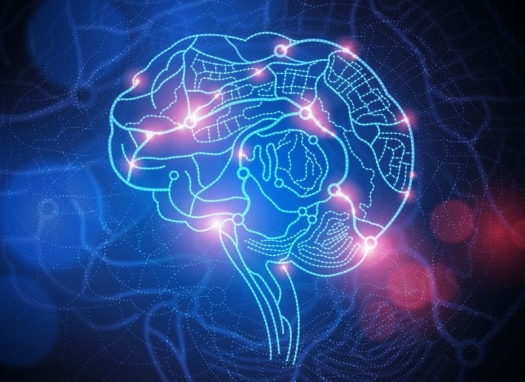BrainPower.jpg

Image by solarseven, Copyright / 123rf.com
There are three main factors recognized to impair the aging brain: degenerative dementias such as Alzheimer's disease; vascular dementias due to clogged arteries and strokes; and so-called normal, agerelated cognitive decline. But this trio of threats does not mean that you are doomed to suffer from impaired ability to think, remember, and solve problems.
It can be quite the contrary, actually, if you empower yourself with the information I am going to give you. With this information, you'll have a much better understanding of how and why the aging brain falters, and specifically how to not only preserve brain functioning through the second half of life, but actually sharpen and expand it.
As you'll see, one obvious conclusion from the information that follows is that cognitive decline has multiple causes. For example, there are at least five separate neurochemical processes that have been identified in Alzheimer's disease: inflammation, oxidative damage, impairment of the cholinergic neurotransmitter system, clogging of the brain with deposits of a waxy substance called amyloid-beta, and loss of connections between neurons. And yet, the conventional medical community has prescribed drugs like Exelon and Aricept (which only partially address the neurotransmitter issue) and looked no further.
Studies now confirm, though, that preserving and restoring brainpower requires that you address as many of the causes of dementia as possible. Here are the six best ways to do that, according to the latest research.
Exercise
In one study, one year after implementing a program of daily endurance-type exercise (the kind that boosts heart rate to a mere 60 to 70 percent of maximum and holds it there for 40 to 60 minutes), healthy older adults were nearly three times more likely than their non-exercising counterparts to have stable (rather than declining) cognitive functioning (December 2009, International Journal of Geriatric Psychiatry). In fact, in animal studies, exercise actually reverses age-related brain impairment. How? By stimulating neural stem cells and by increasing levels of neurotrophic proteins such as Nerve Growth Factor (NGF) and Brain-Derived Neurotrophic Factor (BDNF), which drive brain and nerve cell regeneration and the formation of new neural connections (October 2009, Hippocampus). I recommend choosing three or more endurance-type exercise programs and doing one every day for about an hour. To estimate your maximum heart rate (HRmax), subtract your age from 220. For example, if you're 50, your HRmax is 170. Your target heart rate during exercise (60 to 70 percent of HRmax) is 102 to 119 beats per minute. Consider getting a heart rate monitor, which is inexpensive and available at just about every sporting goods store.
Enrich your environment, enrich your brain
People who stay in lifestyle ruts have a significantly higher incidence of cognitive decline, and now we know why. Regularly making the effort to meet new people, visit new places, have new experiences, and learn new things not only retains, but actually helps restore brain functioning. This is because mental and social activities stimulate the same NGF and BDNF that are induced by physical exercise, and they increase neural connections by as much as 200 percent. Studies also show that getting out and having fun at least twice a week, just for the fun of it, cuts the risk of cognitive decline by more than half, even among people genetically susceptible to dementia (November 2005, The Lancet Neurology).
Douse your inflammatory bonfire
Many doctors continue to blame high cholesterol for age-related cognitive decline, insisting that it causes atherosclerosis in blood vessels that feed the brain. And they insist that a cholesterol-lowering statin drug such as Lipitor will prevent that. But this is a gross oversimplification. In randomized, controlled trials, statin drugs did not prevent atherosclerosis or dementia (April 2009, Cochrane Database of Systematic Reviews) because the real cause of atherosclerosis isn't high cholesterol, it's inflammation, which damages the inner lining of arteries. LDL ("bad") cholesterol then spackles over that damage—which it would do even if cholesterol levels have been reduced artificially by statin drugs.
To get a handle on your level of inflammation, ask your physician to order a blood test to see if you have too much of the inflammatory marker known as high sensitivity C-reactive protein (hs-CRP), which has been solidly linked to cognitive decline. If your hs- CRP is over 0.7 mg/dL, you may have inflammation in your body that you need to reduce. This inflammation could be caused by such inflammatory conditions as an infection, severe arthritis, inflammatory bowel disease, insulin resistance, diabetes, allergies, stress, and unaddressed gluten intolerance.
Some proven ways to douse inflammation in your body include exercising regularly, increasing your muscle mass, eating a Mediterranean-style diet (see below), stabilizing blood sugar and insulin sensitivity, maintaining a healthy blood pressure, controlling stress, and keeping a positive attitude.
Eat a mostly vegetarian, organic, Mediterranean diet
Include brain-boosting foods like berries, whole grains, nuts, seeds, monounsaturated fats, and wild-caught fish and other foods rich in omega-3 polyunsaturated fatty acids, particularly docosahexaenoic acid (DHA). In epidemiologic studies, DHA not only protected against the oxidative stress and inflammation that initiate brain degeneration, but also guarded neurons against other known risk factors for dementia, such as diabetes, cardiovascular disease, and head trauma (September 2009, Journal of Neural Transmission; October 2009, The Journal of Nutrition; August–September 2009, Prostaglandins, Leukotrienes, and Essential Fatty Acids).
Take melatonin
Melatonin levels decrease with age, but they're significantly lower in individuals who show signs of dementia. Furthermore, taking supplemental melatonin slows cognitive loss in Alzheimer's patients, and actually prevents several of the aforementioned neurochemical degenerative processes that ruin the brain in Alzheimer's-type dementia: toxic nerve damage from amyloid-beta deposits, the formation of amyloid tangles, decreased cholinergic neurotransmitter function, neural inflammation, and neural oxidative damage (January 2006, Acta Pharmacologica Sinica). It just so happens that having trouble sleeping is another risk factor for cognitive decline, and getting older is a confirmed risk factor for trouble sleeping. When taken properly, supplemental melatonin improves sleep. I recommend 1–1.5 mg of melatonin half an hour before bedtime.
Take brain-protecting supplements
The following proven brain-protective nutrients can be found at health food stores and vitamin shops.
- Alpha lipoic acid, a powerful brain antioxidant: 100 mg three times daily with meals.
- Acetyl-L-carnitine, another powerful brain antioxidant: 250 mg three times daily.
- Glycerophosphocholine, a nutrient needed for healthy nerve cell function: 1,200 mg a day in divided doses. A good brand is Source Naturals (www.sourcenaturals.com).
- DHA: 200 mg twice daily.
- Phosphatidylserine, a compound that supports nerve signal transmission: 100 mg twice daily. A good brand is Source Naturals (www.sourcenaturals.com).
- B vitamins, which, when deficient, can cause cognitive decline and psychiatric diseases: 100 mg of time-released B-complex daily.
- Ginkgo biloba and ginger, two supplements that improve blood supply to the brain through their blood thinning and vasodilating benefits: 120 mg daily of ginkgo and 500 mg of ginger three times daily with meals.
Several of these nutrients are also in my new brain-boosting supplement called Brilliant Mind, which is available at Dr. Lark's Healthy Directions website.
I am confident that by making these adjustments in your lifestyle, your brain will remain sharp as a tack for years to come!


